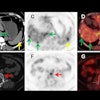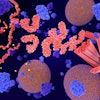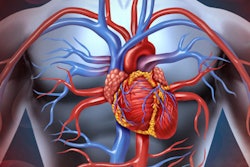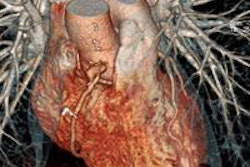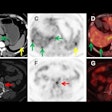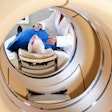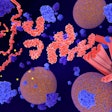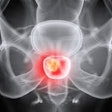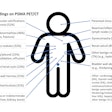
Using PET/CT, researchers have linked higher radiopharmaceutical activity in the stress center of the brain to evidence of inflammation in the arteries and greater risk for cardiovascular events, including heart attack, stroke, and death, in findings scheduled for presentation next month at the American College of Cardiology (ACC) annual meeting.
Researchers from Massachusetts General Hospital (MGH) in Boston said this is the first study to use imaging to show a possible association between biochemical activity in the brain and arterial inflammation, a key component of atherosclerotic disease, which can trigger future adverse cardiovascular events and stroke.
The study analyzed PET/CT scans for 293 patients with an average age of 55 years and who originally received the imaging tests for cancer evaluation between 2005 and 2008. The PET/CT scans in these cases proved negative for cancer.
However, the scans did allow researchers to objectively measure activity in various regions of the brain and also the bone marrow and arteries. After adjusting for age, gender, and other cardiovascular risk factors, researchers found a 14-fold greater risk of cardiovascular events for every unit increase in measured brain stress activity.
In addition, over the approximately five-year study period, 35% of patients in the high-stress group later experienced a cardiovascular event, compared with only 5% of individuals in the low-stress group. PET/CT revealed activation in the brain's fear centers, as well as bone marrow activation and arterial inflammation, which collectively could trigger cardiovascular events.
The findings prompt the question of whether treating stress and reducing the activation of the fear center of the brain may lead to less atherosclerotic inflammation and, ultimately, reduce cardiovascular events, said study co-author Dr. Ahmed Tawakol, co-director of MGH's cardiac MR PET CT program.
To answer that question and others, the authors recommended larger prospective studies.
